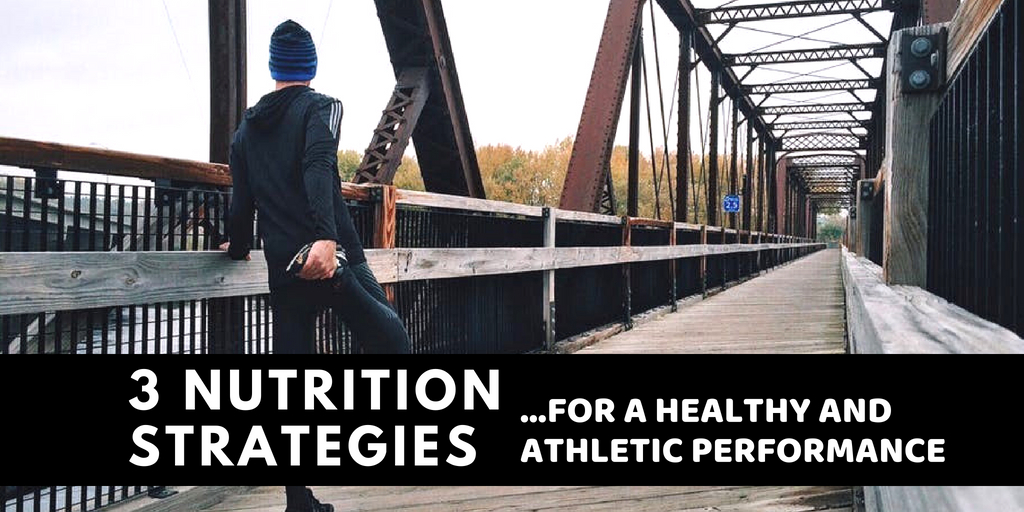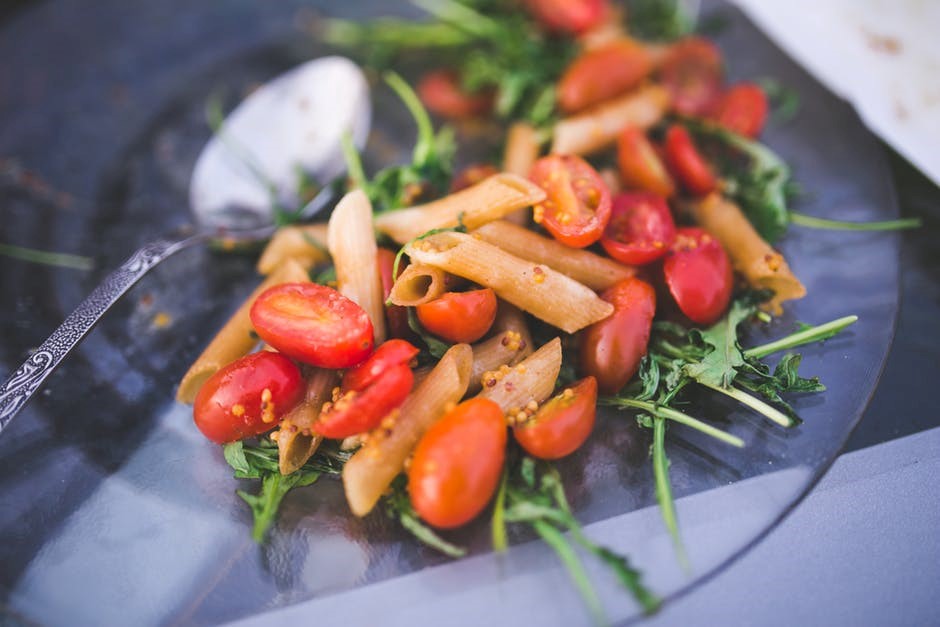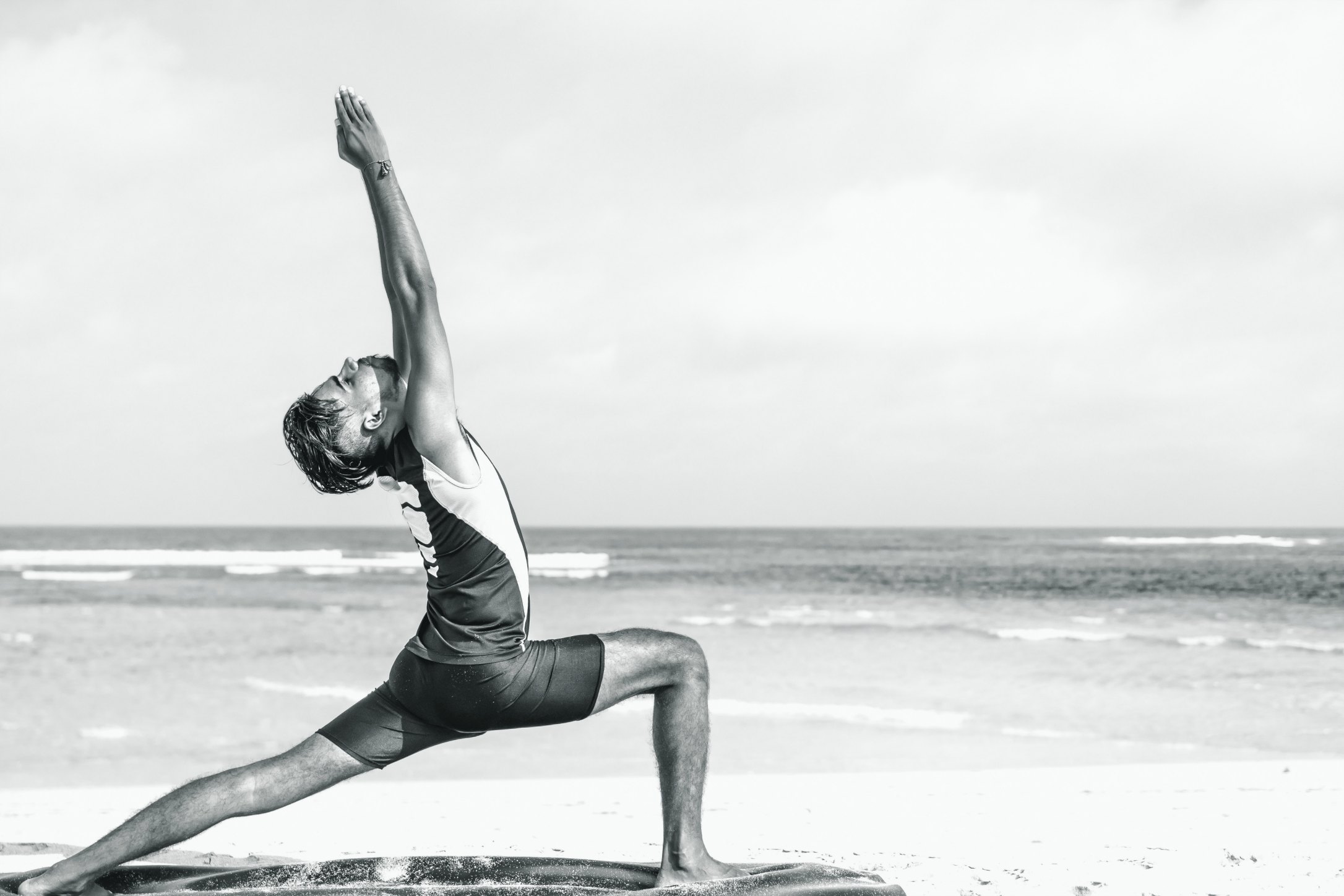3 Astoundingly Simple Nutrition Strategies for Athleticism

Being involved in the field of sports and fitness is a challenge no matter the extent to which it is pursued. However, if you want to grow and improve your skills, there are a lot of factors that need to be accounted for. But perhaps one of the most vital ones has to do with diet and nutrition, or simply put what you eat during a normal day.
But how does the food you consume help you along the path towards reaching your fitness goals? A proper diet doesn’t only have to deal with weight loss or building muscle but fueling the body with energy as well. Here is everything you need to know on this topic from an athletic point of view.

It’s no secret that an effective meal plan needs to be at the center of any sports enthusiast or professional’s routine. To ensure that your body can undertake hours upon hours of training and actual competition time, you need to fuel it properly through balanced dishes, drinks, and snacks. All these elements come into play when it comes to efficacy in the field.
But there isn’t a singular universal formula to fit all. A recent study conducted in 2015 has uncovered that diet is an important part of the athlete's performance as long as it’s tailored and optimized to suit each person’s specific needs, skills, and goals. Therefore, a certified specialist should ideally collaborate with the competitor so that the ideal conclusion is reached.
[tweet_box design="box_10"]Diet is an important part of the athlete's performance as long as it’s tailored and optimized to suit each person’s specific needs, skills, and goals.[/tweet_box]
Modern medical science promotes carbohydrates and protein from both animal and vegetable sources as staples. Another popular option is going down the route of supplements. If that’s something that interests you directly, read more about the GOLO diet plan or other similar programs to find out if this is something that would help you reach your objectives.
But although personalizing each aspect of a professional meal plan is important, there are some things that stay the same across the board. Here are the three most important nutrition strategies that promote healthy athletic performance among pros and amateurs alike. And don’t forget that they can also be tweaked to suit your needs in the best possible way.

When it comes to the diet of an athlete that wants to go places in life, the first crucial nutrient that comes to mind is surely represented by carbohydrates. The list of alimentary carbs is made up of three simple elements: fiber, starch, and sugar. These are found in grains, fruits, vegetables, dairy products, nuts, seeds, legumes, and sweet foods as well.
When it comes to anyone’s choice, the more complex the carbohydrates in your diet are, the better. Simple ones usually consist of sugars, while fiber and starch are the richer options. In fact, they are perfect for weight control and make a great alternative for people struggling with type two diabetes. Plus, when it comes to benefits for athletes, the list goes on.
According to the official athlete nutrition guide put together by esteemed members of the Nutrition Working Group of the Medical and Scientific Commission of the International Olympic Committee, there’s nothing more important than loading up on carbs prior to a competition, or even just an extended period of physical effort.
After more than an hour of sustained activity, average carbohydrate reserves get depleted, which leads to a decline in performance induced by fatigue. Therefore, a few days prior to any big competition or sporting event, professional athletes need to up their intake so that their liver and muscle glycogen stores reach an adequate level.
This practice is known as carbo-loading, and it’s usually attempted 24 to 48 hours before the actual contest. To be more specific, it consists of meeting the highest carb intake targets through rich daily meals. This consists of 9 to 12 grams per bodyweight kilo per day. It is usually accompanied by a reduction in exercise intensity.
For example, a person who weighs 70 kg should ingest at least 630 grams of carbs each day. This can be achieved through eating three full meals with three snacks in between them consisting of foods such as cereal, bread, muffins, rice and pasta, as well as bananas, milk, yogurt and any other carb-rich goods.
When it comes to the pre-competition meal, the same 70 kg person should ideally ingest around 140 grams of carbohydrates to ensure that they keep their forces fresh throughout the trial. Smoothies make great choices at this point, as do sports drinks and any others of the aforementioned foods.
Many pros usually choose to avoid fibrous carbs right before competing in an event because they tend to feel heavy in the stomach. Therefore, starchy ones are more suitable. Examples include potatoes, rice, whole wheat bread, corn, cereal, and peas. Add them to your meals to achieve maximum benefits.

Every devoted athlete knows all too well that protein is an important part of any reliable nutrition plan. All types of meats, such as poultry, pork, lean beef, fish, and seafood, are great sources of this, as are eggs, milk, and other dairy products. But if you think going overboard with them will help you get built faster, you couldn’t be more wrong.
The U.S. National Library of Medicine’s MedLine Plus project advises that a balance must be maintained so that the best results are achieved. While this element is essential in repairing tissue and promoting muscle growth, as well as being used by the body as a backup energy reserve, too much of it is detrimental.
A high-protein diet doesn’t develop brawn in itself, it just supports it. This is why athletes do indeed need some of it in their meals, but only strength training leads to visible improvements. In fact, too much of the stuff is stored as body fat, stresses the kidneys, causes dehydration and even a loss of calcium.
Furthermore, when you focus on eating as much protein as possible, you are most likely missing out on carbs, which are the essential fuel for your workouts. The recommended course of action, in this case, would be to ensure that you get your daily dose and make sure to consume a bit more after each workout session.
The numbers, in this case, do not depend on age, height or gender, but are rather based on a pure bodyweight dependent ratio. According to Harvard Medical School , the recommended dietary allowance of protein is of 0.8 grams per kilogram of body weight. Therefore, a person who weighs 70 kilos should ideally chomp down 56 grams of protein daily.
Out of this quantity, as much as 20 grams need to be ingested directly after a bout of intensive physical activity. This result has been established through a British study cited by Men’s Health magazine. Therefore, don’t hurry to gulp down an entire carton of eggs like Rocky Balboa did in the films; just make sure that your post-workout meal is a bit richer in protein.

Last, but certainly not least, maintaining an ideal hydration level is essential in achieving athletic performance. Unfortunately, this is also the one factor which is grossly overlooked by many practitioners who mistakenly believe that skipping out on water sometimes isn’t that big of a deal. But the truth is a vastly different one.
In reality, just 1% of dehydration not only impedes your pursuit, but it also endangers your health. When your water reserves are not adequately replenished, you will experience fatigue and headaches, complete with dry mouth and dark-colored urine. If you start showing any of these signs, it’s time to take appropriate action right this very moment.
Fortunately, there are plenty of other foods and drinks which will help you with this besides water. Although H2O should still be your priority, electrolyte sports drinks, tea, natural fruit juice and even milk are equally viable alternatives. Foods such as soup or yogurt also work wonders, as do fruits and vegetables like cucumbers, melons, and oranges.
Remember that your body loses a few liters of sweat during a vigorous workout, which is why replenishing this is important. The ideal approach would be to drink at least two cups of water prior to any exercise you undertake, as well as half a cup every 20 minutes during the activity in itself. After the first hour, you can also try switching to a sports drink for an extra boost.
To make this an essential part of your nutrition plan, accustom and motivate yourself to keep its importance in mind. It will be difficult in the beginning, but once you get the hang of it you will optimize your performance to the fullest extent and keep your energy up for longer hours as well.
Proper hydration also lubricates your joints and tissues , which leads to an overall improved functioning of the musculoskeletal system. It also allows you to acclimate faster and better in various climates, which is especially important for Olympic athletes, or anyone else who travels a lot for tournaments and other sporting events.

Therefore, although drinking plenty of water sounds like the tritest recommendation one could receive, it’s actually an essential part of an athlete’s nutrition. If you want to stay on top of your game and maintain your health while achieving performance at the same time, always remember this seemingly simple, yet essential piece of advice.
To conclude, it’s safe to say that proper athletic performance has to do with a personalized nutrition regimen, among many other factors. But although there isn’t a sole plan to rule them all, some things are still rather universal across the board. These are represented by carbohydrate intake, protein balance, and optimal hydration.
By respecting these three simple strategies, your physical attributes are bound to improve over time. In order to stick to it, you have to train not only your physique but your psyche as well. Keep your mind set an all the things you have to do and respect the adequate time intervals for each one, and you’ll shine brighter than ever.
Luke S. Mitchell is an MS Undergraduate in Sports Journalism and manager of Defend Your Healthcare . He is interested not only in the mind-body relationship and how motivation shapes our bodies but also in how we draw energy just from one simple yet powerful thought. You can find him on Facebook and Twitter .
But how does the food you consume help you along the path towards reaching your fitness goals? A proper diet doesn’t only have to deal with weight loss or building muscle but fueling the body with energy as well. Here is everything you need to know on this topic from an athletic point of view.
Nutrition and Performance

It’s no secret that an effective meal plan needs to be at the center of any sports enthusiast or professional’s routine. To ensure that your body can undertake hours upon hours of training and actual competition time, you need to fuel it properly through balanced dishes, drinks, and snacks. All these elements come into play when it comes to efficacy in the field.
But there isn’t a singular universal formula to fit all. A recent study conducted in 2015 has uncovered that diet is an important part of the athlete's performance as long as it’s tailored and optimized to suit each person’s specific needs, skills, and goals. Therefore, a certified specialist should ideally collaborate with the competitor so that the ideal conclusion is reached.
[tweet_box design="box_10"]Diet is an important part of the athlete's performance as long as it’s tailored and optimized to suit each person’s specific needs, skills, and goals.[/tweet_box]
Modern medical science promotes carbohydrates and protein from both animal and vegetable sources as staples. Another popular option is going down the route of supplements. If that’s something that interests you directly, read more about the GOLO diet plan or other similar programs to find out if this is something that would help you reach your objectives.
3 Astoundingly Simple Nutrition Strategies for Athleticism
But although personalizing each aspect of a professional meal plan is important, there are some things that stay the same across the board. Here are the three most important nutrition strategies that promote healthy athletic performance among pros and amateurs alike. And don’t forget that they can also be tweaked to suit your needs in the best possible way.
#1. Carbo-Load for Energy Like Pro Athletes

When it comes to the diet of an athlete that wants to go places in life, the first crucial nutrient that comes to mind is surely represented by carbohydrates. The list of alimentary carbs is made up of three simple elements: fiber, starch, and sugar. These are found in grains, fruits, vegetables, dairy products, nuts, seeds, legumes, and sweet foods as well.
When it comes to anyone’s choice, the more complex the carbohydrates in your diet are, the better. Simple ones usually consist of sugars, while fiber and starch are the richer options. In fact, they are perfect for weight control and make a great alternative for people struggling with type two diabetes. Plus, when it comes to benefits for athletes, the list goes on.
According to the official athlete nutrition guide put together by esteemed members of the Nutrition Working Group of the Medical and Scientific Commission of the International Olympic Committee, there’s nothing more important than loading up on carbs prior to a competition, or even just an extended period of physical effort.
After more than an hour of sustained activity, average carbohydrate reserves get depleted, which leads to a decline in performance induced by fatigue. Therefore, a few days prior to any big competition or sporting event, professional athletes need to up their intake so that their liver and muscle glycogen stores reach an adequate level.
This practice is known as carbo-loading, and it’s usually attempted 24 to 48 hours before the actual contest. To be more specific, it consists of meeting the highest carb intake targets through rich daily meals. This consists of 9 to 12 grams per bodyweight kilo per day. It is usually accompanied by a reduction in exercise intensity.
For example, a person who weighs 70 kg should ingest at least 630 grams of carbs each day. This can be achieved through eating three full meals with three snacks in between them consisting of foods such as cereal, bread, muffins, rice and pasta, as well as bananas, milk, yogurt and any other carb-rich goods.
When it comes to the pre-competition meal, the same 70 kg person should ideally ingest around 140 grams of carbohydrates to ensure that they keep their forces fresh throughout the trial. Smoothies make great choices at this point, as do sports drinks and any others of the aforementioned foods.
Many pros usually choose to avoid fibrous carbs right before competing in an event because they tend to feel heavy in the stomach. Therefore, starchy ones are more suitable. Examples include potatoes, rice, whole wheat bread, corn, cereal, and peas. Add them to your meals to achieve maximum benefits.
#2. Twenty Grams of Protein for Muscle Mass

Every devoted athlete knows all too well that protein is an important part of any reliable nutrition plan. All types of meats, such as poultry, pork, lean beef, fish, and seafood, are great sources of this, as are eggs, milk, and other dairy products. But if you think going overboard with them will help you get built faster, you couldn’t be more wrong.
The U.S. National Library of Medicine’s MedLine Plus project advises that a balance must be maintained so that the best results are achieved. While this element is essential in repairing tissue and promoting muscle growth, as well as being used by the body as a backup energy reserve, too much of it is detrimental.
A high-protein diet doesn’t develop brawn in itself, it just supports it. This is why athletes do indeed need some of it in their meals, but only strength training leads to visible improvements. In fact, too much of the stuff is stored as body fat, stresses the kidneys, causes dehydration and even a loss of calcium.
Furthermore, when you focus on eating as much protein as possible, you are most likely missing out on carbs, which are the essential fuel for your workouts. The recommended course of action, in this case, would be to ensure that you get your daily dose and make sure to consume a bit more after each workout session.
The numbers, in this case, do not depend on age, height or gender, but are rather based on a pure bodyweight dependent ratio. According to Harvard Medical School , the recommended dietary allowance of protein is of 0.8 grams per kilogram of body weight. Therefore, a person who weighs 70 kilos should ideally chomp down 56 grams of protein daily.
Out of this quantity, as much as 20 grams need to be ingested directly after a bout of intensive physical activity. This result has been established through a British study cited by Men’s Health magazine. Therefore, don’t hurry to gulp down an entire carton of eggs like Rocky Balboa did in the films; just make sure that your post-workout meal is a bit richer in protein.
# 3. Stay Hydrated and on Top of Your Game

Last, but certainly not least, maintaining an ideal hydration level is essential in achieving athletic performance. Unfortunately, this is also the one factor which is grossly overlooked by many practitioners who mistakenly believe that skipping out on water sometimes isn’t that big of a deal. But the truth is a vastly different one.
In reality, just 1% of dehydration not only impedes your pursuit, but it also endangers your health. When your water reserves are not adequately replenished, you will experience fatigue and headaches, complete with dry mouth and dark-colored urine. If you start showing any of these signs, it’s time to take appropriate action right this very moment.
Fortunately, there are plenty of other foods and drinks which will help you with this besides water. Although H2O should still be your priority, electrolyte sports drinks, tea, natural fruit juice and even milk are equally viable alternatives. Foods such as soup or yogurt also work wonders, as do fruits and vegetables like cucumbers, melons, and oranges.
Remember that your body loses a few liters of sweat during a vigorous workout, which is why replenishing this is important. The ideal approach would be to drink at least two cups of water prior to any exercise you undertake, as well as half a cup every 20 minutes during the activity in itself. After the first hour, you can also try switching to a sports drink for an extra boost.
To make this an essential part of your nutrition plan, accustom and motivate yourself to keep its importance in mind. It will be difficult in the beginning, but once you get the hang of it you will optimize your performance to the fullest extent and keep your energy up for longer hours as well.
Proper hydration also lubricates your joints and tissues , which leads to an overall improved functioning of the musculoskeletal system. It also allows you to acclimate faster and better in various climates, which is especially important for Olympic athletes, or anyone else who travels a lot for tournaments and other sporting events.

Therefore, although drinking plenty of water sounds like the tritest recommendation one could receive, it’s actually an essential part of an athlete’s nutrition. If you want to stay on top of your game and maintain your health while achieving performance at the same time, always remember this seemingly simple, yet essential piece of advice.
Final Thoughts
To conclude, it’s safe to say that proper athletic performance has to do with a personalized nutrition regimen, among many other factors. But although there isn’t a sole plan to rule them all, some things are still rather universal across the board. These are represented by carbohydrate intake, protein balance, and optimal hydration.
By respecting these three simple strategies, your physical attributes are bound to improve over time. In order to stick to it, you have to train not only your physique but your psyche as well. Keep your mind set an all the things you have to do and respect the adequate time intervals for each one, and you’ll shine brighter than ever.
Author Bio:
Luke S. Mitchell is an MS Undergraduate in Sports Journalism and manager of Defend Your Healthcare . He is interested not only in the mind-body relationship and how motivation shapes our bodies but also in how we draw energy just from one simple yet powerful thought. You can find him on Facebook and Twitter .




































































































